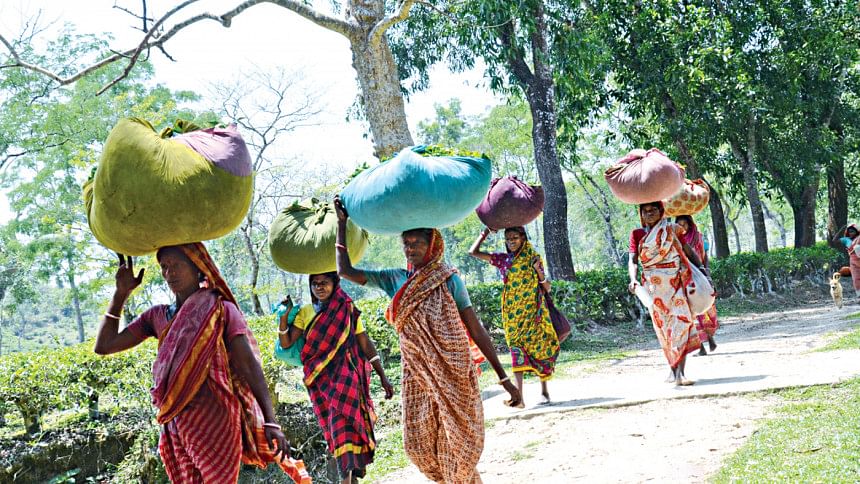Clonal seedlings a new hope for the tea industry

Clonal tea seedlings, which are cloned from hybrid varieties of the plant, are helping develop the tea industry of Bangladesh by providing high yields of top-quality tea, according to growers.
The clone tea plants developed so far have demonstrated average yields of more than 3,000 kilogrammes (kgs) per hectare while also indicating reduced susceptibility to disease, experts say.
The tea industry has developed steadily over the years, and even though much of its potential remains untapped, there have been many achievements along the way.
For example, technology and scientific knowledge developed by the Bangladesh Tea Research Institution (BTRI) is being used to locally produce tea clones through genetic modification and micro propagation.
Compared to common seed cultivars, clone cultivars have better cold and drought tolerance, disease and insect resistance, and improved taste and odour.
In order to boost tea production in the country, the BTRI has so far released 18 varieties of clone tea plants that were bred though clonal selection and seed development.
Mainly four types of bi-clonal seedlings -- BT-1, BT-2, BT-3 and BT-4 -- developed by the BTRI are providing the best quality and highest yields compared to those grown from normal seeds.
Besides, the BTRI recently developed its latest variety of clone tea called BT-23 while the launch of BT-24 is highly anticipated.
High quality seedlings of the BT-22 and BT-23 varieties were unveiled on the occasion of the first National Tea Day in 2021. The event was organised by Bangladesh Tea Board.

Shamim Ahmed Chowdhury, manager of Shirajnagor Tea Garden, said he is enjoying good yields from his clonal tea plants even though they have low heat tolerance.
However, the BTRI has come up with new seedlings that are more resilient to bad weather, such as cold and drought as well disease and pests.
"So, I planted those too but I cannot say how the yields will be until the harvest period," he added.
As such, the development of high-quality clone tea plants with high production capacity has been making a significant contribution to the progress of the tea industry.
Dr Md Ismail Hossain, director (in-charge) of the BTRI, said the highest recorded yield from a hectare of clone tea plants is about 4,000 kgs.
"Efforts are being made to produce quality clones that are capable of leafing and full bushing in a short period of time," he added.
Tea workers trained in cloning seedlings say that no seedlings are currently produced from seeds with about 25,000 clonal seedlings being planted each year.
Golam Mohammad Shiblee, chairman of the Sylhet chapter of the Bangladesh Tea Association, a platform of tea garden owners, said they are getting more than double the yield from clone plants compared to traditional seedlings.
Shiblee went on to say that the BTRI discovered these clones after several years of research.
Jahar Tarafder, member secretary of the Tea Planters and Traders Association of Bangladesh, said 96.5 million kgs of tea was produced by 167 tea gardens across Bangladesh in 2021.
This was the highest recorded production in the 168-year history of the country's tea industry.
Bangladesh ranks ninth in global tea production. The domestic demand for tea is increasing due to the country's increasing population and continuous urbanisation.
As a result, exports of tea have suddenly decreased but still, the importance of the tea industry in the national economy is immense and far-reaching.
"As the production of tea increases, so too does the price," Tarafder said, adding that there is no alternative to developing new and improved varieties of seedlings to sustain the industry.

 For all latest news, follow The Daily Star's Google News channel.
For all latest news, follow The Daily Star's Google News channel. 



Comments